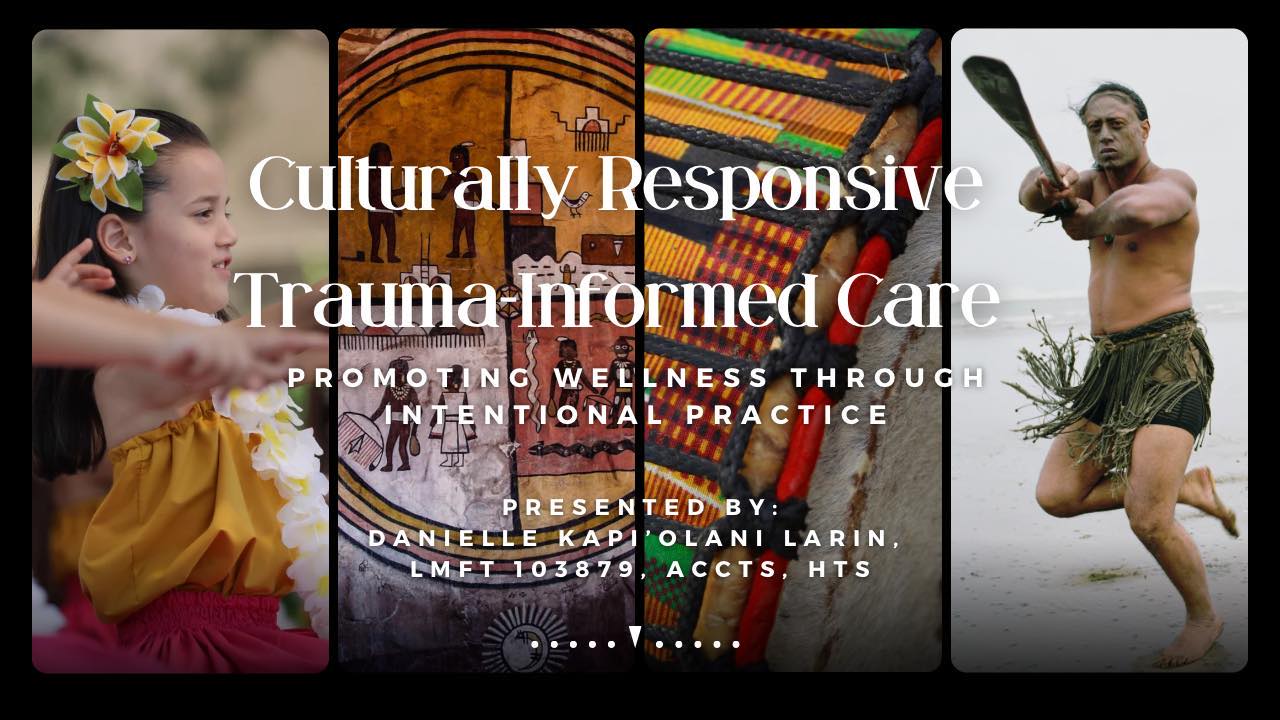Culturally Responsive Trauma Informed Care - 2 hr virtual presentation 2023-11
Description
PRESENTER: DANIELLE NICOLE KAPI’OLANI LARIN, LMFT
Most humans will experience a traumatic event at some point in their life. With 90% of public mental health consumers reporting traumatic stress (The National Council.org), trauma-informed providers are crucial to recovery. A vital part of our treatment conceptualization are the consideration of cultural factors. Yet, 47% of client attrition rates are due to provider prejudice and biases. Additionally Black Indigenous and People of Color (BIPOC) clients report low rates of therapy satisfaction due to the minimization of culturally important elements of care (Meyer & Zane, 2013) Therapists appear to have a treatment gap to close with historically marginalized communities surviving the effects of western imperialism and colonization. Through intentionality and humility, we can begin to support restorative care with our clients by co-creating safe spaces of shared wisdom and mutual respect. This workshop invites clinicians to consider culturally responsive trauma-informed care for their practice. We will define trauma and understand the effects of it. Mental health clinicians will have the opportunity to review the pillars of trauma-informed care, learn about the four types of trauma from an Indigenous lens, discover two frameworks of culturally responsive care, and receive suggestions on how to apply culturally specific interventions within the trauma-informed framework.
OBJECTIVES
1. Attendees will be able to name the pillars of trauma-informed care.
2. Attendees will be able to describe the four types of trauma from an Indigenous perspective.
3. Attendees will be able to recognize two frameworks around creating culturally responsive care.
4. Attendees will be able to apply at least one intervention when implementing culturally responsive practices.

